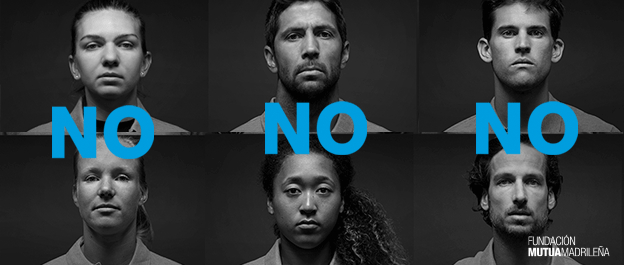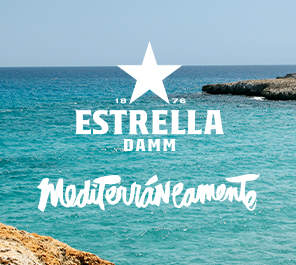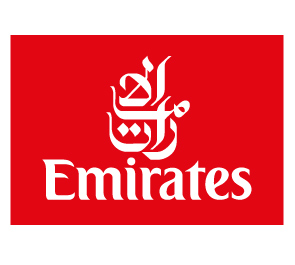David Ferrer is hanging up his racquet at the 2019 Mutua Madrid Open after a stunning career: ex-world number three, 29 ATP titles, three Davis Cups, French Open finalist, semi-finalist at the US Open and the Australian Open, quarter-finalist at Wimbledon… It is, without a doubt, one of the best careers in the history of Spanish tennis, and nothing if not outstanding on a global level. Because the Javea native has the respect of his peers on tour a thousand times over. Among them, of course, are Novak Djokovic, Rafael Nadal, Roger Federer and Andy Murray, also known as the Big 4.
Ferrer is quick to mention that this group of legends and the “ambition” that characterises them has made him a better player. Above all, his compatriot Nadal: “Rafa has been a mirror for me. Although he is younger and joined the tour later, I’ve learned from him. Winning a tournament and winning it again. Winning at the French Open, going to Queen’s and winning again… That showed me that when you win a tournament it’s not enough, you have to keep going. That helped me reach number three in the world and to have the consistency I did”.
The player from Alicante is in no doubt about how much it benefitted him having the Big 4 as competition. “If I hadn’t seen those players, if I’d been with the other kinds of players that I saw at the start of my career, I wouldn’t have been such a good player”, he recognises. If he had to choose, he would go with Federer as the most demanding opponent: “He would change the pace and drive me crazy. Maybe I made him sweat like many players, but I never had the chance to beat him”.
And which elite ATP player’s game was he most comfortable with? That of David Nalbandian, a “great player”. Although he qualifies this by saying that “there are also players I always struggled against. There are styles of play you get used to. But there are others, even though they’re lower in the rankings, that you find harder to beat. That happens”.
The final of the 2013 French Open, against Nadal, comes up as one of the peaks of his career, despite the fact that it was not a victorious encounter. “I never had a chance. I’m not blaming anyone, but my motivation for that match was not the best. I went onto court a little distressed. And that’s normal because it was my first final, it’s logical. Anyway, maybe in those moments we were none the wiser. Neither I nor my team had a better idea of how to approach the match. We did what we could” laments Ferrer.
But it is a positive memory nonetheless. Like many others. He himself selects the two biggest disappointments of his career. First, the Hawkeye decision in 2013 that prevented him from beating Murray in the final of the ATP Masters 1000 in Miami. “That ball that I challenged was called out. Sometimes, when I’ve trained in Miami, on the centre court at Crandon Park, I still feel that little moment of sadness that’s hard to overcome. It was very close. I honestly thought it was very close. It was. That’s the call that was given. If there were no Hawkeye I would have won the tournament”, he notes on the incident.
Another memory that Ferrer will never forget is how close he and Feliciano López came to winning an Olympic medal for Spain in London 2012. A very close defeat to the French team of Jo-Wilfred Tsonga and Michael Llodra (6-3, 4-6, 18-16) prevented them from reaching the final… and the subsequent exhaustion left them without a bronze. “We were both in the locker room and it was so hard. We were playing so well. And that match, at 0-40… We were the better side for the whole match and it really hurt us. If we’d lost an easy match I think we’d have had a better chance of winning the bronze. But it was so hard mentally that the next day was very difficult”, he remembers.
However, on balance he has had an exceptional career that has taken him to the Olympus of Spanish tennis, alongside legends that were role models for Ferrer. Such as Juan Carlos Ferrero, ex-world number 1 and, above all, a close friend. “He opened his doors to me and offered advice. We were very close. It’s something I’ll be eternally grateful for. It’s similar to what I feel now with Roberto Bautista. Juan Carlos taught me to help a young player. We got on well and he gave me the chance to be with him at a tournament we had in Valencia. I have a lot of respect and affection for him, he’s a person I’ll always be grateful to. If there’s one thing I regret, it’s not having taken the step of working with him at certain points of my career”, he says of the Valencian player’s unconditional support.
Ferrer would also like to have had more time to soak up the luxury of having national tennis legends by his side, such as Carlos Moyà and Sergi Bruguera. Not forgetting Albert Costa and Àlex Corretja. He laments the fact that he was unable to spend more time with them at certain points of his career. However, their friendship has always been there, particularly with Ferrero, Feliciano, Marc López, Nadal and Bautista. The “affection”, both from them and his professional peers in general, is one of the most significant things he will take with him.
Why change history when it has been on his side so often throughout the years? “I can only say that I haven’t won a Grand Slam because I wasn’t able to. I’ve tried to give my all but I wouldn’t exchange places with players that have won one. There are players that have one a Grand Slam and have only played one or two Masters. I’ve played in seven, I’ve been the second or third player in the history of Spain to win X matches, the 12th in the world to win X number of matches… My tennis life has been very good. I felt good about myself for many years of my career”, ends Ferrer. Clearly, he has never lost the most valuable trait of all; humility.













































